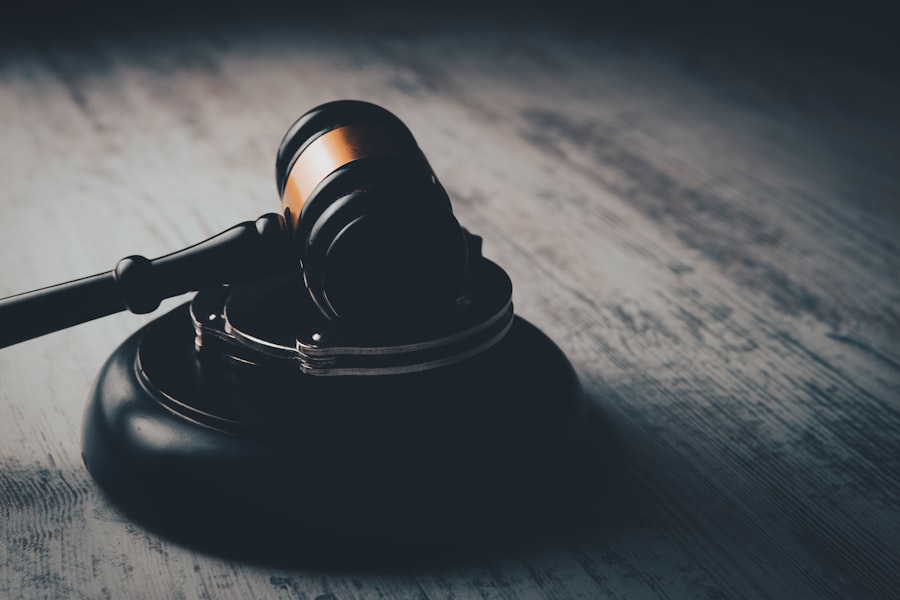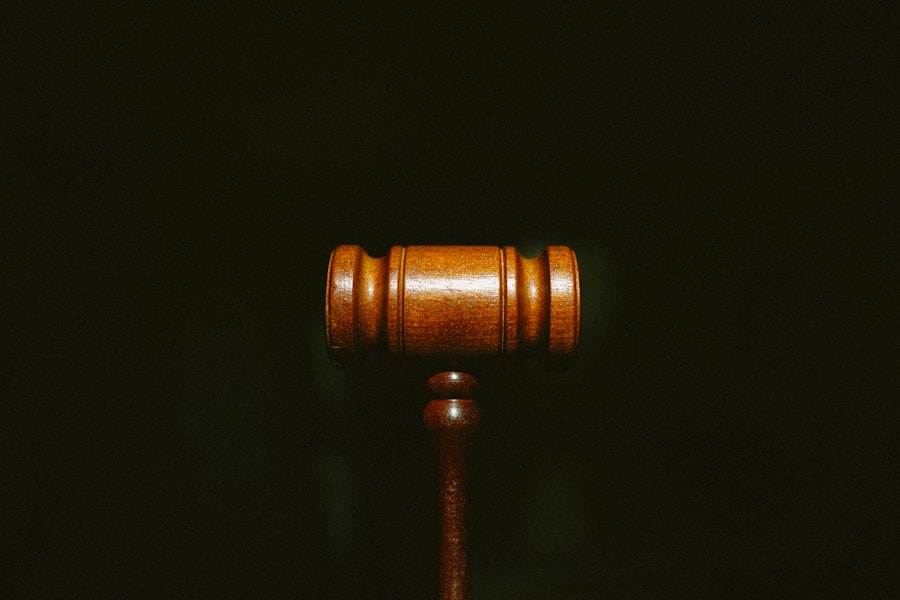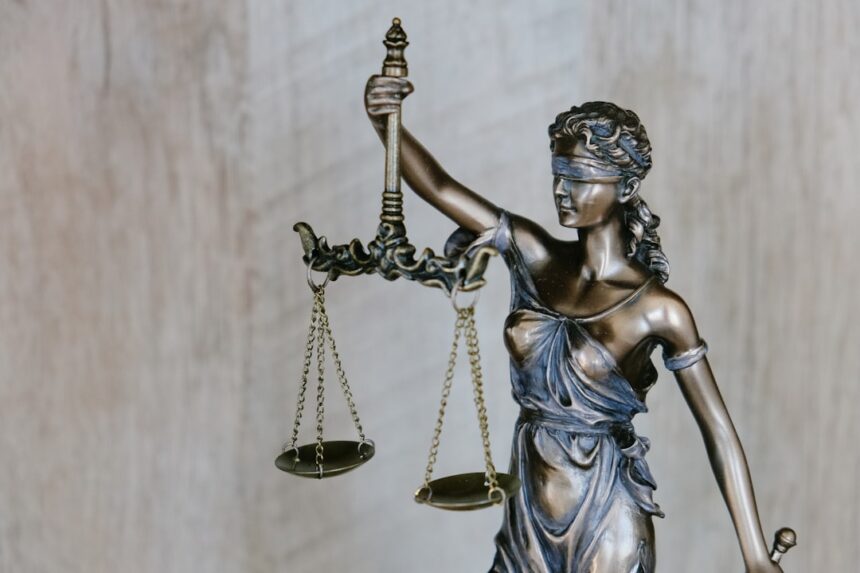Power of Attorney (POA) is a legal document that grants one person the authority to act on behalf of another in legal or financial matters. While this arrangement can be incredibly beneficial, it also opens the door to potential abuse and fraud. I have come to realize that understanding the nuances of power of attorney fraud is crucial for anyone who may be considering granting such authority to another individual.
Fraud can occur when the agent, who is entrusted with significant responsibilities, misuses their power for personal gain, often at the expense of the principal—the person who granted the authority. The complexity of power of attorney fraud lies in its subtlety. Many people may not even realize they are victims until significant damage has been done.
The agent may manipulate situations, forge documents, or misrepresent information to exploit their position. This type of fraud can take many forms, from financial exploitation to emotional manipulation, and it often leaves victims feeling vulnerable and betrayed. As I delve deeper into this topic, I recognize the importance of awareness and education in preventing such abuses.
Key Takeaways
- Power of Attorney fraud involves the misuse of authority granted to an agent to make financial or legal decisions on behalf of the principal.
- Common scenarios of Power of Attorney fraud include unauthorized asset transfers, changes to beneficiary designations, and unauthorized use of funds.
- Signs of Power of Attorney fraud may include sudden changes in the principal’s financial situation, unexplained transactions, and the agent’s reluctance to provide information.
- Power of Attorney fraud can have a devastating impact on the victim, including financial loss, emotional distress, and legal complications.
- Legal consequences of Power of Attorney fraud may include civil lawsuits, criminal charges, and revocation of the agent’s authority.
- To protect yourself from Power of Attorney fraud, carefully choose a trustworthy agent, regularly monitor your financial accounts, and consider setting limits on the agent’s authority.
- Reporting Power of Attorney fraud to the authorities and financial institutions is crucial to prevent further harm and hold the responsible party accountable.
- Preventing Power of Attorney fraud involves educating yourself about the risks, setting clear expectations with the agent, and seeking legal advice if necessary.
- Financial institutions play a key role in preventing Power of Attorney fraud by implementing strict verification processes and reporting suspicious activities.
- Choosing a trustworthy agent for Power of Attorney is crucial to prevent fraud and ensure that your best interests are protected.
- Seeking legal assistance in cases of suspected Power of Attorney fraud can help the victim understand their rights, pursue legal action, and seek restitution.
Common Scenarios of Power of Attorney Fraud
In my exploration of power of attorney fraud, I have encountered several common scenarios that illustrate how this type of abuse can manifest. One prevalent situation involves family members exploiting their authority over elderly relatives. In these cases, an adult child or relative may be granted power of attorney under the guise of helping with financial management.
However, they may instead siphon off funds for personal use, leaving the elder in a precarious financial situation. This scenario is particularly heartbreaking because it often involves a breach of trust within families. Another common scenario involves strangers or caregivers who gain power of attorney through manipulation or deceit.
I have learned about cases where caregivers convince vulnerable individuals to sign documents without fully understanding the implications.
In such instances, the agent may sell off assets or drain bank accounts, leaving the victim with little recourse.
These scenarios highlight the need for vigilance and thorough vetting when granting power of attorney.
Signs of Power of Attorney Fraud

Recognizing the signs of power of attorney fraud is essential for protecting oneself and loved ones. I have identified several red flags that can indicate potential abuse. One significant warning sign is a sudden change in financial behavior.
If I notice that a loved one’s bank account is being drained without explanation or that they are making unusual transactions, it could be a sign that their agent is misusing their authority. Additionally, if I observe a lack of communication between the principal and their agent, it raises concerns about transparency and trust. Another sign to watch for is the presence of unexplained documents or changes in estate planning.
If I find new wills or powers of attorney that seem inconsistent with previous arrangements, it may indicate that someone has manipulated the situation for their benefit. Furthermore, if I notice that a principal is becoming increasingly isolated from family and friends, it could suggest that the agent is attempting to control their environment and limit outside influence. Being aware of these signs can empower me to take action before significant harm occurs.
Impact of Power of Attorney Fraud on the Victim
| Impact of Power of Attorney Fraud on the Victim | Metrics |
|---|---|
| Financial Loss | Amount of money stolen |
| Emotional Distress | Level of anxiety, stress, and trauma experienced |
| Legal Complications | Number of legal battles and complications faced |
| Trust Issues | Impact on trust in family members or caregivers |
| Health Decline | Physical and mental health deterioration |
The impact of power of attorney fraud on victims can be devastating and far-reaching. I have come to understand that the emotional toll can be just as significant as the financial loss. Victims often experience feelings of betrayal, shame, and confusion as they grapple with the realization that someone they trusted has exploited them.
This emotional distress can lead to anxiety and depression, further complicating their recovery process. Financially, the consequences can be dire. Victims may find themselves facing significant losses that jeopardize their quality of life and financial stability.
I have seen cases where individuals lose their life savings or are forced to sell their homes due to the actions of an unscrupulous agent. The aftermath often requires extensive legal battles to recover lost assets, which can be both time-consuming and costly. The ripple effects of power of attorney fraud extend beyond the immediate victim, affecting families and communities as well.
Legal Consequences of Power of Attorney Fraud
The legal consequences for those who commit power of attorney fraud can be severe, though they often depend on the jurisdiction and specific circumstances surrounding each case. I have learned that individuals found guilty of abusing their power can face criminal charges ranging from fraud to theft, which may result in fines or imprisonment. The legal system aims to hold perpetrators accountable for their actions and provide some measure of justice for victims.
In addition to criminal penalties, civil lawsuits can also arise from power of attorney fraud. Victims may seek restitution for their losses through civil court, which can lead to financial compensation for damages incurred due to the fraudulent actions of their agent. However, pursuing legal action can be a complex process that requires careful navigation through the legal system.
It is essential for victims to understand their rights and options when faced with such situations.
How to Protect Yourself from Power of Attorney Fraud

Protecting oneself from power of attorney fraud requires proactive measures and careful consideration when granting authority to another individual.
This includes checking references, assessing their financial acumen, and ensuring they have a history of integrity and trustworthiness.
Additionally, I believe it is crucial to maintain open lines of communication with family members and trusted friends about my decisions regarding power of attorney. By discussing my choices with others, I create a support network that can help monitor my situation and intervene if any red flags arise. Regularly reviewing my financial accounts and estate planning documents also allows me to stay informed about any changes or unusual activity that could indicate potential fraud.
Reporting Power of Attorney Fraud
If I suspect that power of attorney fraud has occurred, it is vital to take immediate action by reporting it to the appropriate authorities. I have learned that reporting such incidents can help protect not only myself but also others who may be at risk. Depending on the situation, I can report suspected fraud to local law enforcement agencies or adult protective services if an elder is involved.
In addition to law enforcement, I can also notify financial institutions where fraudulent transactions may have taken place. Many banks have protocols in place for handling suspected fraud cases and can assist in freezing accounts or investigating suspicious activity. By taking these steps promptly, I increase the chances of recovering lost assets and preventing further harm.
Preventing Power of Attorney Fraud
Preventing power of attorney fraud requires a multifaceted approach that combines education, vigilance, and proactive measures. I have come to appreciate the importance of educating myself and my loved ones about the risks associated with granting power of attorney. By understanding the potential for abuse, we can make informed decisions about whom we trust with such significant responsibilities.
Moreover, implementing safeguards such as regular audits of financial accounts and estate planning documents can help detect any irregularities early on. I believe that establishing clear guidelines for how an agent should manage finances and communicate with the principal can also mitigate risks. By setting expectations upfront, I create a framework that holds agents accountable for their actions.
The Role of Financial Institutions in Preventing Power of Attorney Fraud
Financial institutions play a critical role in preventing power of attorney fraud by implementing robust policies and procedures designed to protect customers from exploitation. I have observed that many banks now require additional documentation when a power of attorney is presented, ensuring that they verify the legitimacy of the document before allowing any transactions. Furthermore, financial institutions often provide training for their employees on recognizing signs of potential fraud and how to respond appropriately when they suspect abuse may be occurring.
This proactive approach not only protects individual customers but also contributes to a broader culture of accountability within the financial sector.
The Importance of Choosing a Trustworthy Agent for Power of Attorney
Choosing a trustworthy agent for power of attorney is perhaps one of the most critical decisions one can make when considering this legal arrangement. I have learned that selecting someone with a strong moral compass and a genuine interest in my well-being is essential for ensuring that my interests are protected. It is vital to consider not only their qualifications but also their character and reliability.
I believe it is beneficial to have open discussions with potential agents about my expectations and concerns regarding their role as my representative. By fostering transparency from the outset, I create an environment where trust can flourish, reducing the likelihood of misunderstandings or potential abuse down the line.
Seeking Legal Assistance in Cases of Suspected Power of Attorney Fraud
When faced with suspected power of attorney fraud, seeking legal assistance is often necessary to navigate the complexities involved in addressing such issues effectively. I have come to understand that consulting with an attorney who specializes in elder law or estate planning can provide invaluable guidance on how to proceed. Legal professionals can help assess the situation, determine whether fraud has occurred, and outline potential courses of action for recovery or restitution.
They can also assist in filing reports with law enforcement or initiating civil lawsuits if necessary. Engaging legal expertise not only empowers me but also ensures that my rights are protected throughout the process. In conclusion, understanding power of attorney fraud is essential for anyone considering granting such authority to another individual.
By recognizing common scenarios, signs, and impacts associated with this type of fraud, I can take proactive steps to protect myself and my loved ones from potential exploitation. Through education, vigilance, and seeking legal assistance when necessary, I can navigate this complex landscape with greater confidence and security.
Power of attorney fraud is a serious issue that can have devastating effects on individuals and families. It involves the misuse of the legal authority granted to someone to act on another person’s behalf, often leading to financial exploitation. An article on this topic discusses various ways to protect oneself from such fraud, including the importance of choosing a trustworthy agent and regularly reviewing financial statements. For more insights on this issue, you can read a related article on this page. This resource provides valuable information on recognizing the signs of power of attorney abuse and steps to take if you suspect fraudulent activity.
FAQs
What is power of attorney fraud?
Power of attorney fraud occurs when someone abuses their authority as an appointed agent under a power of attorney to benefit themselves at the expense of the person who granted them that authority.
How does power of attorney fraud happen?
Power of attorney fraud can happen when the appointed agent misuses their authority to make financial transactions, sell property, or make decisions that are not in the best interest of the person who granted them power of attorney.
What are the signs of power of attorney fraud?
Signs of power of attorney fraud may include unexplained financial transactions, sudden changes in the person’s financial situation, and the agent refusing to provide information or access to the person who granted them power of attorney.
How can power of attorney fraud be prevented?
Power of attorney fraud can be prevented by carefully selecting a trustworthy and responsible agent, clearly outlining the agent’s powers and limitations in the power of attorney document, and regularly monitoring the agent’s actions.
What should I do if I suspect power of attorney fraud?
If you suspect power of attorney fraud, you should report your concerns to the appropriate authorities, seek legal advice, and consider revoking the power of attorney if necessary.




